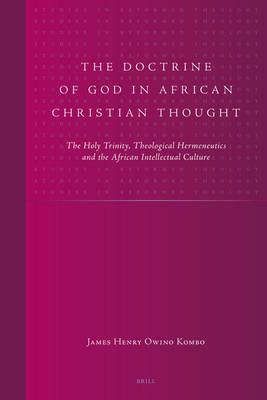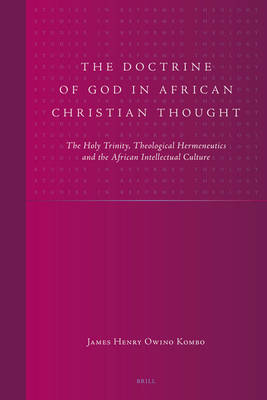
- Afhalen na 1 uur in een winkel met voorraad
- Gratis thuislevering in België vanaf € 30
- Ruim aanbod met 7 miljoen producten
- Afhalen na 1 uur in een winkel met voorraad
- Gratis thuislevering in België vanaf € 30
- Ruim aanbod met 7 miljoen producten
Zoeken
The Doctrine of God in African Christian Thought
The Holy Trinity, Theological Hermeneutics and the African Intellectual Culture
James Henry Owino Kombo
€ 232,45
+ 464 punten
Omschrijving
The Christian faith knows and worships one God, who is revealed in the Son and in the Holy Spirit. This is the meaning of the doctrine of the Trinity in Christian thought. Although Christian orthodoxy defines the doctrine of the Trinity, the intellectual tools used to capture it significantly vary. At different times and in different places, Western Christianity has, for instance, used neo-Platonism, German Idealism, and the conceptual tools of the second-century Greeks. Taking elements from the known African intellectual framework, this book argues that for African Christians, the respective pre-Christian African understanding of God and the Ntu-metaphysics, in particular, function as conceptual gates for an attempt towards articulating the Trinity for African Christian audiences.
Specificaties
Betrokkenen
- Auteur(s):
- Uitgeverij:
Inhoud
- Aantal bladzijden:
- 298
- Taal:
- Engels
- Reeks:
- Reeksnummer:
- nr. 14
Eigenschappen
- Productcode (EAN):
- 9789004158047
- Verschijningsdatum:
- 28/05/2007
- Uitvoering:
- Hardcover
- Formaat:
- Genaaid
- Afmetingen:
- 167 mm x 243 mm
- Gewicht:
- 703 g

Alleen bij Standaard Boekhandel
+ 464 punten op je klantenkaart van Standaard Boekhandel
Beoordelingen
We publiceren alleen reviews die voldoen aan de voorwaarden voor reviews. Bekijk onze voorwaarden voor reviews.











